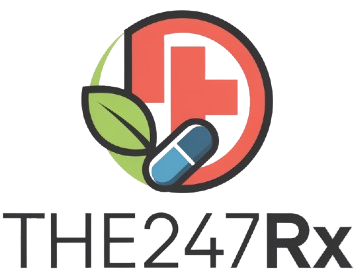Anti-Aging
As the pursuit of youthful energy and clear skin continues, we seek out the best products, supplements, medications, and skin treatments to slow down the passage of time. Here are some expert opinions, science studies, and hacks to achieve your anti-aging plans. From innovative skincare products to powerful supplements to drugs that address cellular function, we got you covered. So, whether you’re trying to make your skin glow, or to give yourself a lift, or just want to stay healthy, our selected posts have something to help you out.
The anti-aging market is extremely extensive, with a wide array of products catering to various aspects of ageing. Whether you’re looking to reduce wrinkles, boost your energy levels, or just stay healthy, knowing what kind of anti-aging products there are out there can make the difference. Here’s a closer look at the most prevalent categories:
1. Supplements
Supplements help us fight ageing from within. They typically have vitamins, minerals, and compounds that maintain cell health and reduce oxidative stress. Popular options include:
• Collagen Supplements: Increase elasticity and moisture, while diminishing wrinkles.
• Antioxidants: Vitamin C, vitamin E, and resveratrol that fight free radicals that speed up the process of aging.
• Omega-3 Fatty Acids: Helps keep the heart, brain and joints healthy.
• CoQ10 (Coenzyme Q10): Increases cellular metabolism and wards off degeneration.
Supplements can be an amazing complement to a well-balanced diet, but they need to be chosen wisely in accordance with your health objectives and physician’s advice.
2. Topical Treatments and Ointments
Topically applied products are a necessity for maintaining beautiful skin, correcting the most obvious age-related features such as wrinkles, sagging and uneven skin tone. Key categories include:
• Moisturizers: Moisturize the skin for less dryness and smoothness.
• Retinoids: Vitamin A derived products that increase collagen production and cell turnover to diminish wrinkles and brighten skin.
• Peptides: Help repair the skin naturally and increase firmness.
• Sunblock: Protect against UV rays, the leading cause of skin aging.
• Exfoliators: Formulas containing either alpha-hydroxy acids (AHAs) or beta-hydroxy acids (BHAs) to exfoliate dead skin cells leaving behind brighter, more radiant skin.
The key to topical treatment is consistency, as the effect can be weeks-long.
3. Medications
Prescription and over-the-counter medications provide specific treatments for more advanced aging. Common options include:
• Retinoids (Tretinoin, e.g.): Can be purchased in concentrated forms to treat deep wrinkles and age spots.
• Hormone Replacement Therapy (HRT): Treats hormonal deficiencies leading to ageing, especially in women approaching menopause.
• Peptide Injectables: For example botulinum toxin (Botox) or dermal fillers to reduce wrinkles and regain volume.
They should be administered under medical supervision to maintain safety and efficacy.
4. Lifestyle Enhancers
Some anti-aging brands are holistic, and aim to help you live longer:
• Adaptogens: Herbs such as ashwagandha and Rhodiola that help regulate stress and boost your energy.
• Nootropics: Cognitive supplements for improved brain function and memory.
• Energy Supplements: Products such as NAD+ precursors boost mitochondrial function to combat fatigue and enhance cell repair.
Making the Right Choice
Each anti-ageing product is designed for a different goal and the best results often emerge from a combination of them. An active lifestyle that is well-balanced, exercised and sleeps well complements these products and increases their efficacy. Consult with a dermatologist or doctor to make sure that the products you purchase work for your skin, medical history, and purpose.
Now that you understand these categories, you’re well on your way to discovering the perfect anti-aging regimen for you!






